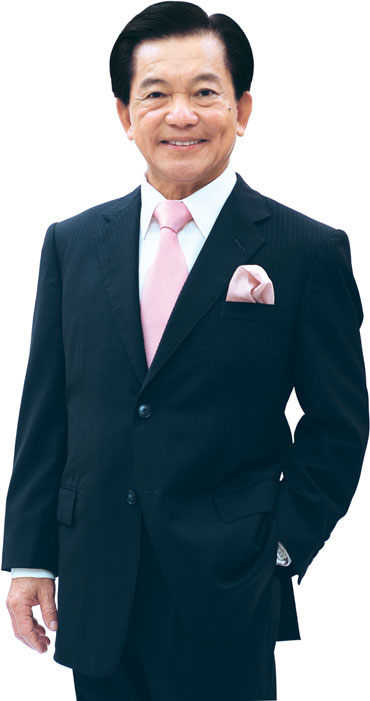




Today, my mind turns to a subject I did not think I would have to write about, and it is the passing of Tan Sri Dato’ Dr Lee Shin Cheng on the evening of June 1, 2019, two days short of his 80th birthday.
I first heard about him when I was working for Sime Darby Plantations in Sabah in the 1980s, looking for plantation land to buy. Many big companies were doing that, too. But IOI Corporation raced ahead. It bought Baturong, a big piece of land that ran for miles on the left side of the Tawau-Lahad Datu road. I had my eye on it but did not get far.
With his team and banks in support, Tan Sri Lee went on to buy Halusah estate near the Sandakan road and, further in, he bought Bendera, Sungei Kretam and Batu Pakis. By the Kinabatangan, he netted Gold Bond, Very Good Estate, and Best Cocoa. Cocoa prices stayed down. He switched to oil palm and changed the names of the estates as well.
Tan Sri Lee chose only areas with the best soils. He developed Morisem, by the Kinabatangan. The palms were dark green. I heard he was there often. He went ahead to buy Lindbar, with a river flowing by it. He acquired Sakilan Desa, by the Labuk road. The tall and stately Albizzia softwood was soon gone, to be replaced with oil palm. He bought Ladang Sabah nearby, and later he went on to buy Pamol Plantations, which had areas upriver where I once worked under the former owner, Unilever.
IOI bought Pamol Plantations from Unilever through a bidding process where serious buyers were shown the details in an information room in Kuala Lumpur and visited the areas both in Kluang and in Sabah. I went with another bidder, and I knew every corner.
But IOI won the bid. It turned out that luck was with Tan Sri Lee, and his bold moves paid off as the price of palm oil went up. He led his team by arriving even on holidays and weekends, to see that the crop was brought in and that managers walked the fields. He worked to please the bankers and the analysts. He was as good as his word in getting results.
His strictness was legendary, but it was also true that he would keep his good people, even from the companies that he acquired. That was how managers like Kuppusamy s/o Sinnappan were asked to stay and got promoted in Pamol Kluang; as well as N B Sudhakaran, an engineer, who is now the Plantations Director in the Group.
Later, I was in the downstream business of Sime Darby, and turned my attention to refineries for edible oils and oleochemicals. I visited Palmco, for it was also for sale. Others had come to study it too, but IOI persevered, and brought it into the IOI fold. In 2002, he bought Unilever’s refineries, Loders Croklaan, based in Holland.
Back in Johor, I once helped in a bid for another client when the oleochemical plant Pan Century was up for sale. The plant was near the refinery I used to run in Pasir Gudang, This time I brought a team to check closely. I advised my clients on the price to quote, but IOI won.
But probably Tan Sri Lee’s most happy achievement was buying the Dunlop plantations. They belonged to the Dunlop group of UK. Many had tried to buy but failed, until Multipurpose Holdings Bhd bought the estates and later, he bought from them.
The plantations, such as Gomali and Paya Lang in Johor, had high standards. Sagil, next to where I once worked in Tangkak, had a golf course and a fine clubhouse, and the road was tarred up to the bungalows. Oil palm replaced cocoa, and the yield was among the highest in the group. Tan Sri Lee was said to have been turned away by Dunlop from a job he had applied for about 20 years earlier. He came back as the owner.
Tan Sri Lee was one who would choose a target, collect the facts and make his move. He had courage. But he was also not afraid to change his mind. He had walked away from deals and he did that not only with plantations, but also with properties. That was where he was expanding next, and he was mostly successful of course, converting areas into housing and townships when the time was right. That included the place in Putrajaya where he built his head office, the Marriott and Le Meridien, and shopping malls. There were plantations before they became townships.
As we know, over time the property business was listed on its own, with a young team. It went on to develop properties, such as in Johor and Singapore. The latest was at Xiamen, in Fujian, China. At Xiamen, I was struck by the prosperity in the city. The young people had handphones and electric scooters, and were learning English seriously. The roads, hotels and facilities were built to welcome foreign tourists.
I did not see the IOI houses, but I did pass by the IOI specialty fats plant. It was new and now owned 70% by Bunge following the sale of shares to them on most of the downstream plants. Tan Sri Lee knew the value of partners who could help in the integration of business.
There was only one moment when I saw him being disappointed. It was the time he had to tell me he would very much like to own a plantation in Johor where he had lost his bid. On this one, I was advising the winner. But when I told him later that there would be no deal, he let the matter rest.
One day, he had asked about my work as a consultant – if there was anything I could do for him on the plantation. I had to say: “From all I had heard about what you are doing, there is nothing I can add.”
I said that sincerely. He was a true field man, who would check every detail, from fertilising, to collection of loose fruit and checking on the ripeness of bunches being harvested. If possible, he would check and talk to every tree. He did not take weekends seriously, and he worked with a passion.
He had so much energy that, when he entered a room, it was electric as he made a beeline for someone he would recognise and like to meet. His eyes were bright and alive.
So, it was a surprise to hear through the grapevine that he was not well. It proved to be true from the rare photos that came out in the press, and soon the news came that he was gone.
So, a giant in the industry has passed away. We will miss him. We are sure the businesses he left behind are stronger than ever; his children and their team will build them further, and most likely in the same way he had done.
He did it all because he did not get a job he had applied for. That was just as well. That job was not what life had planned for him.
Mahbob Abdullah
Plantation Consultant
This slightly edited article is reproduced with permission of ‘Focus Malaysia’.